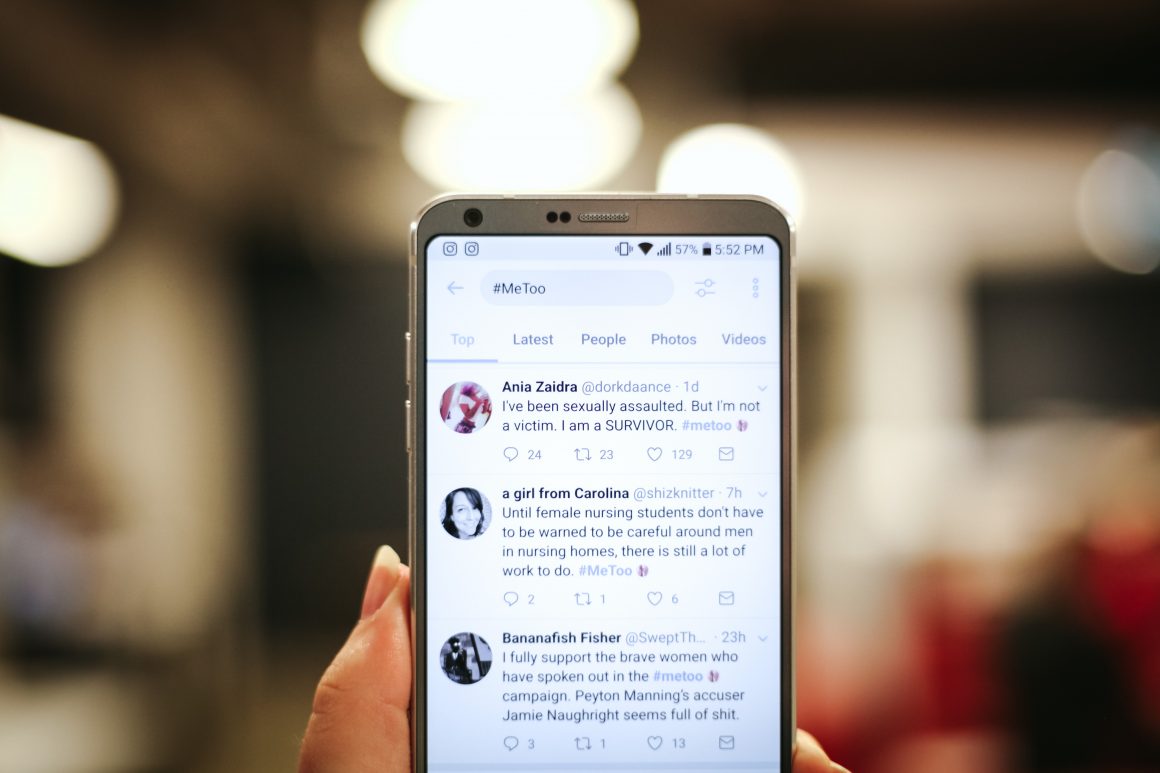
U of C professor researches social media campaigns like #MeToo
By Hannah Brunn, November 21 2017 —
On Oct. 15, actress Alyssa Milano posted two words on Twitter that took social media by storm — #MeToo. In the following days, the hashtag was seen everywhere, used by celebrities and non-celebrities alike to show the world that sexual violence is a structural, institutionalized problem rather than an individual experience.
#MeToo, a response by Milano to the allegations against movie producer Harvey Weinstein, was a campaign created by activist Tarana Burke when a young girl told Burke that she was being sexually abused. This conversation led Burke to create Just Be Inc., a non-profit organization focusing on empowering young women of colour. Over the years, there have been a number of online campaigns fighting rape culture. #MeToo stood out with its connection to many Hollywood actresses, as well as with the huge numbers of girls and women who participated.
University of Calgary communications professor Jessalynn Keller has spent the last three years studying how women have used social media to combat rape culture and sexual violence. She says that her research shows that by using hashtags like #MeToo and #BeenRapedNeverReported, women are able to make their stories visible and build connections with other women.
“Hashtags like #MeToo allow women to actually come forth with their own story on their own terms,” Keller said.
While focusing on #BeenRapedNeverReported, the women Keller interviewed for her research said they found themselves overwhelmed with the amount of support they received upon posting.
“A lot of people who experience sexual violence think its just them,” Keller said. “By tweeting out their stories, the girls and women I have interviewed talked about a consciousness shift, where they realize that what has happened to them has happened to lots of people.”
Keller also emphasized that #MeToo helps highlight some of the problems within modern feminist culture. Initially, the public forgot that #MeToo started with Burke, a black woman. Keller said this illustrates that cultural minorities and members of the LGBTQ community, as well as people with disabilities, are having their stories ignored and that reaching out to those communities is essential.
“Let black women, Indigenous women and other women of colour speak about their own experiences, rather than white women trying to speak for them,” she said. “There are opportunities to reach out to people with a different background than you or people who are marginalized, and listen to their stories,” Keller said.
Other hashtag campaigns that have addressed these issues, like #SolidarityIsForWhiteWomen, critique the ways in which white women sometimes overlook the experiences of women of colour, while #YouOKsis? challenges street harassment against women of colour. #IdleNoMore is a Canadian movement that resists violence against women and is a response to the overwhelming number of missing and murdered Indigenous women.
According to the Native Women’s Association of Canada, Indigenous women 15 years and older are 3.5 times more likely to experience violence than non-Indigenous women. Seventy-five per cent of Indigenous girls under the age of 18 have been sexually abused and 80 per cent of girls under the age of eight residing in the Northwest Territories have been sexually assaulted in 1999. While the number of non-Indigenous women reporting severe forms of violence has declined since 1999, the number of Indigenous women who have faced similar attacks remains relatively unchanged.
Keller said talking about the issue is just the beginning and that the conservation needs to keep happening even after the hype of the Weinstein allegations fade away. She added that while her research shows that there are benefits to talking about these issues, it’s important to see change.
“It’s about changing attitudes, it’s about changing institutions and our ideas about gender,” she said.
Keller empathized two things about making change happen. She says one big step is inviting men into the conversation, as well as changing what it means to be a man in society. The other is to have proper education about consent and sexual violence in sexual education programs in schools.
Keller added that just because someone didn’t post or share their story online, it doesn’t make it any less important and that when people do come forth, in whatever way they choose, they deserve to be heard and believed.
“They should by no means feel obligated or feel like their story is less because they don’t tweet out their story or write a post on Facebook,” she said.
At the U of C, students can contact sexual violence support advocate Carla Bertsch in MacKimmie Block 204 or here. Students can also receive peer mentoring through the Women’s Resource Centre and the Consent Awareness and Sexual Education student club.
